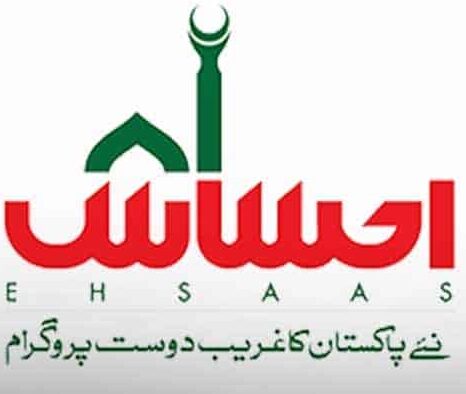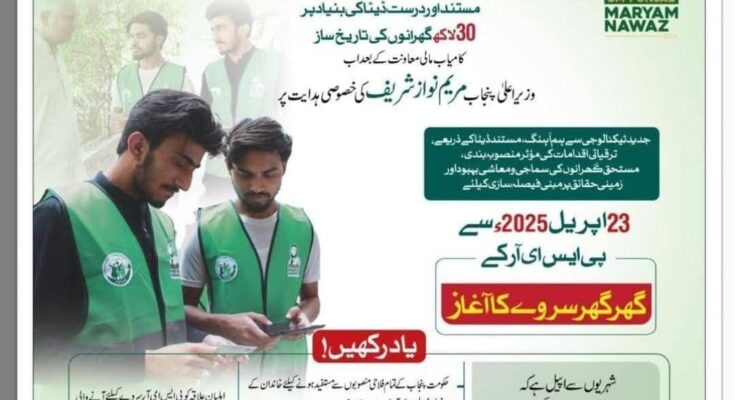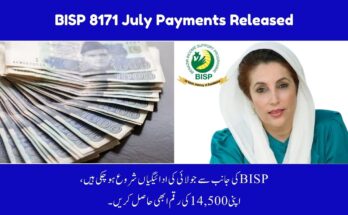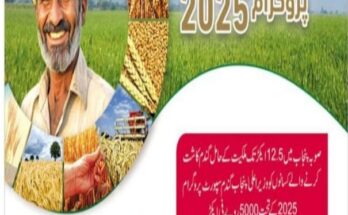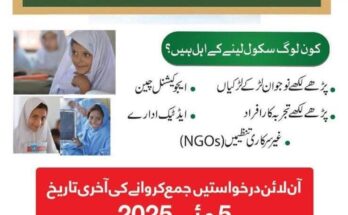Introduction
PSIR Maryam Nawaz Program 2025, Punjab Chief Minister Maryam Nawaz Sharif has continued to spearhead transformative initiatives aimed at uplifting the socio-economic conditions of Punjab’s 130 million residents. One of her flagship efforts, the Punjab Socio-Economic Registry (PSER) program, has evolved into a cornerstone of her administration’s welfare strategy. Often referred to as the “PSIR Maryam Nawaz Program” in public discourse, this initiative is a comprehensive, data-driven effort to identify and support low-income and vulnerable households across the province. By streamlining access to government welfare schemes, the PSER program ensures that financial aid, food subsidies, and other benefits reach those who need them most, particularly during critical times like Ramadan. This article explores the PSER program’s objectives, implementation, key features, and its impact on Punjab’s socio-economic landscape in 2025.
Background and Objectives
PSIR Maryam Nawaz Program, the first woman to serve as Punjab’s Chief Minister since February 26, 2024, has prioritized inclusive governance and poverty alleviation. The PSER program, initially launched in July 2024, was designed to address a critical gap in Punjab’s welfare system: the lack of credible, centralized data on the province’s socio-economic demographics. As Maryam Nawaz noted during the program’s inauguration, “Punjab has a population of 130 million, but it is not known how many people fall into which socio-economic category.” This absence of reliable data previously led to inefficiencies, such as undeserving individuals receiving aid during relief efforts like the Ramadan Relief Package.
The PSER program’s primary objective is to create a robust database that classifies households based on their socio-economic status. By doing so, it enables the Punjab government to target welfare programs with precision, ensuring that resources are allocated to low-income families, women, youth, and other marginalized groups. The program serves as a prerequisite for accessing a range of Maryam Nawaz’s welfare initiatives, including the Negahban Ramadan Package, Rashan Card Program, and various financial assistance schemes. Beyond immediate relief, the PSER aims to foster long-term economic empowerment by connecting registered households to opportunities in education, healthcare, and skill development.
Key Features of the PSER Program in 2025
1. Comprehensive Data Collection
PSIR Maryam Nawaz Program operates through a digital survey that collects detailed information on households’ income, assets, and living conditions. In 2025, the Punjab government has expanded its outreach to ensure inclusivity, with over 5,000 registration centers established across the province, many located in public schools. Additionally, door-to-door survey teams have been deployed to reach remote and underserved areas, making the process accessible to those who cannot visit registration centers.
The survey requires basic information such as the head of household’s Computerized National Identity Card (CNIC) number, registered mobile number, and residential address. This data is verified through the PSER database to ensure transparency and prevent duplication. The program’s digital infrastructure, accessible via the official PSER portal (pser.punjab.gov.pk), allows residents to register online, check eligibility, and track application status. A toll-free helpline (0800-02345) provides further assistance, ensuring that technical or procedural issues do not hinder participation.
2. Integration with Welfare Schemes
The PSER program is the gateway to Maryam Nawaz’s extensive portfolio of welfare initiatives in 2025. Registration in the PSER database is mandatory for eligibility in programs such as:
- Negahban Ramadan Package 2025: This initiative provides essential food items, including flour, lentils, rice, cooking oil, and dates, to over 3 million low-income families during Ramadan. Eligible households also receive financial assistance of Rs. 10,000 to cover additional expenses. The registration deadline for this package was extended to February 20, 2025, to accommodate more applicants.
- Rashan Card Program 2025: Launched on May 1, 2025, this program offers a monthly ration subsidy of Rs. 5,000 to deserving families, enabling them to purchase essential food items from registered utility stores. The program targets low-income households struggling with inflation and aims to provide consistent support beyond Ramadan.
- Aghosh Program: Focused on maternal and child health, this initiative provides Rs. 23,000 to pregnant women and mothers of children under two years in 13 districts, starting with underserved areas like Dera Ghazi Khan and Rajanpur.
- Skills on Wheel Project: Aimed at training 100,000 youth in high-demand technical skills, this program prioritizes job placement and entrepreneurship opportunities, with a focus on remote areas.
- IT Training for Rural Women: This initiative targets 27,000 rural women, offering free training in web development, coding, digital marketing, and other digital skills, along with a Rs. 5,000 monthly stipend and free computers upon completion.
By linking these programs to the PSER database, the government ensures that benefits are distributed equitably and transparently, minimizing leakages and favoritism.
3. Focus on Accessibility and Dignity
Maryam Nawaz has emphasized that welfare programs should respect the dignity of beneficiaries. The PSER program reflects this philosophy by offering queue-free registration and distribution processes. For instance, the Negahban Ramadan Package includes home delivery options for food items, reducing the burden on fasting families. Similarly, financial aid under the Ramadan Package is disbursed through 18,000 designated centers or direct money orders, with 20,000 agents appointed to assist with withdrawals. The government has also issued strict warnings against illegal deductions, encouraging beneficiaries to report issues via the helpline.
4. Transparency and Accountability
The PSER program’s digital framework enhances transparency by allowing real-time monitoring of registrations and disbursements. The status checker tool on the PSER portal enables applicants to verify their eligibility by entering their CNIC number, ensuring that only deserving families receive benefits. Maryam Nawaz has underscored the importance of fairness, stating, “The Ramzan Package is a right of the poor, and a duty of the government. People should get their rights with respect and dignity.”
Implementation in 2025
The PSER program’s implementation in 2025 has been marked by strategic expansions and technological advancements. The Punjab government has invested heavily in digital infrastructure, ensuring that the PSER portal is user-friendly and accessible even in areas with limited internet connectivity. The door-to-door survey initiative, launched in January 2025, has been particularly effective in registering low-income families who lack the means to visit registration centers. Teams ask standardized questions about household income, employment, and expenses, ensuring consistency in data collection.
To maximize outreach, the government has collaborated with local authorities, including Union Councils and public schools, to set up registration centers. These centers are equipped with trained staff to guide applicants through the process, particularly those unfamiliar with digital platforms. The program’s success is also attributed to extensive awareness campaigns, which leverage social media, SMS notifications, and community leaders to inform residents about registration deadlines and eligibility criteria.
The PSER program’s integration with the 8070 SMS service has streamlined eligibility checks. By sending their CNIC number to 8070, applicants receive instant confirmation of their status for programs like the Ramadan Package. This service has been particularly useful in addressing technical delays and ensuring timely communication with beneficiaries.
Impact on Punjab’s Socio-Economic Landscape
The PSER program has had a transformative impact on Punjab’s welfare ecosystem in 2025. By creating a centralized database, it has enabled the government to identify and prioritize low-income households, reducing inefficiencies in resource allocation. The program’s focus on digitalization has also modernized Punjab’s governance, aligning it with global standards for data-driven policymaking.
1. Poverty Alleviation
The Negahban Ramadan Package and Rashan Card Program have provided immediate relief to millions of families grappling with inflation and economic challenges. The Rs. 10,000 financial aid and subsidized food items have eased the burden of Ramadan expenses, allowing families to observe the holy month with dignity. The Rashan Card Program, with its monthly Rs. 5,000 subsidy, offers sustained support, addressing the long-term needs of low-income households.
2. Empowerment of Women and Youth
Maryam Nawaz’s programs, facilitated by the PSER, have placed a strong emphasis on empowering women and youth. The Aghosh Program has improved maternal and child health outcomes in underserved districts, while the IT Training for Rural Women has equipped thousands of women with marketable skills, enabling them to participate in the digital economy. Similarly, the Skills on Wheel Project and CM Punjab Laptop Scheme (distributing 110,000 laptops to students) have opened new avenues for youth employment and education.
3. Economic Growth
By fostering entrepreneurship and skill development, the PSER-linked programs are contributing to Punjab’s economic diversification. The Maryam Nawaz Loan Scheme, offering interest-free loans of up to Rs. 5 million, has supported small and medium-sized enterprises, particularly among women and youth. The Asaan Karobar Card Scheme further encourages business expansion, creating jobs and stimulating local economies.
4. Social Equity
The PSER program’s inclusive approach ensures that benefits reach marginalized communities, including rural residents, senior citizens, and minorities. The Himmat Card and Minority Card initiatives, accessible through PSER registration, provide targeted support to these groups, promoting social equity and cohesion.
Challenges and Criticisms
Despite its successes, the PSER program has faced challenges. Technical issues, such as delays in SMS responses or portal glitches, have occasionally frustrated applicants. The reliance on digital registration has also posed difficulties for illiterate or elderly residents, although door-to-door surveys and registration centers have mitigated this issue. Critics argue that the program’s ambitious scope requires sustained funding and robust oversight to prevent mismanagement. Additionally, while the PSER has improved transparency, concerns about data privacy and security persist, necessitating stringent safeguards.
Future Prospects
Looking ahead, the PSER program is poised to become a model for socio-economic registries nationwide. Maryam Nawaz has expressed plans to expand the program’s scope, incorporating advanced analytics to predict and address emerging needs. The integration of artificial intelligence could further enhance the program’s ability to identify vulnerable households and tailor interventions. Additionally, partnerships with private sectors and international organizations could bolster funding and technical expertise, ensuring the program’s sustainability.
The PSER’s success in 2025 has also inspired discussions about replicating the model in other provinces. By sharing best practices and technological frameworks, Punjab could lead the way in transforming Pakistan’s welfare system. Maryam Nawaz’s vision of a “welfare state” in Punjab, as articulated in her Rashan Card Program announcement, underscores the PSER’s role as a catalyst for systemic change.
Conclusion
The PSIR Maryam Nawaz Program, embodied by the Punjab Socio-Economic Registry, represents a bold step toward inclusive and data-driven governance in Punjab. By providing a foundation for targeted welfare schemes, it has empowered millions of low-income families, women, and youth, while fostering economic growth and social equity.
Despite challenges, the program’s emphasis on accessibility, transparency, and dignity has resonated with Punjab’s residents, earning widespread acclaim. As Maryam Nawaz continues to champion innovative solutions, the PSER program stands as a testament to her commitment to uplifting Punjab’s socio-economic future. For residents seeking to benefit, registering at pser.punjab.gov.pk or contacting the helpline remains the first step toward accessing a brighter, more secure tomorrow.
